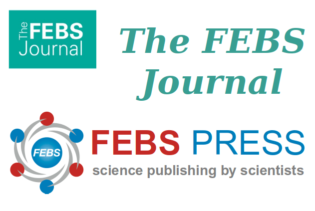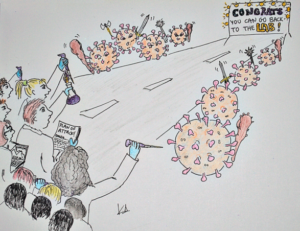Ioannis Tsagakis immersed himself into the life of a scientific editor by undertaking an editorial internship at FEBS Press in his third year of PhD. The timing coincided with COVID-19 lockdown hence the internship was completed ‘virtually’ from Leeds, instead of the Cambridge office.
The career of a scientific editor allows you to work at the forefront of cutting-edge research, just like a researcher. The need to keep up with the literature and critically review manuscripts, assessing where a field is heading tied with science communication as part of the role, all seemed like exciting aspects that I wanted to get a feel for when done outside of academia. After having applied to more than five journals, Dr Takashi Ochi from the University of Leeds directed me to Dr Esther Pilla, who used to work for FEBS Press, and she put me in touch with the Editorial Manager of The FEBS Journal, Paraminder Dhillon. In turn, I was then introduced to Mary Purton, Executive Publisher and Manuel Breuer, Deputy Editorial Manager of The FEBS Journal, who also interviewed me. Manuel then served as my PIPS host organisation contact and PIPS supervisor.
FEBS Press is owned by the not-for-profit Federation of European Biochemical Societies (FEBS). FEBS Press publishes four journals (The FEBS Journal, FEBS Letters, Molecular Oncology and FEBS Open Bio) and reinvests all income in molecular life sciences, supporting fellowships, courses, conferences, and other FEBS activities (including supporting early career researchers and Women in Science). At FEBS Press, I experienced the complete editorial process, from submission of manuscripts, through triage, peer review to acceptance and publication. In particular, I assisted with triage of submitted manuscripts and performed quality control steps for a total of 78 manuscripts across all four journals. For some of the accepted articles, I highlighted key findings and summarised the implications of results in the form of blog posts which were posted in the FEBS Network. There were also instances where I commissioned editorial pieces or perspectives from authors, one of which was published recently in FEBS Letters on the topic of science communication.
FEBS Press were also keen to do more to promote their journals on social media. To this end, I took over the management of the Twitter account of The FEBS Journal, Molecular Oncology and FEBS Open Bio, with a view to improve exposure to journal content such as papers and editorial pieces as well as build a larger following. Briefly, for June and July 2020 tweets from The FEBS Journal generated ~75% more impressions, had an increased engagement rate and the account had an ~85% increased gain of followers per month on average compared to the previous 3 months.
Advertising campaign for the COVID-19 Creative Communication Competition run by The FEBS Journal. Commissioned by Katerina Douka, a PhD student at Leeds.
Through this 3-month internship at FEBS Press, I gained insights into the spectrum of a scientific editor’s responsibilities and day-to-day activities and got an appreciation as to how it compares to a career in academic research. Overall, I was allowed to enhance many of my skills (such as time management and taking initiative) which are transferrable to many roles as well as to the rest of my PhD. Reflecting back on this period, I found that good communication between members of the team was instrumental in cultivating a welcoming and open atmosphere, contributing to improved mental health and productivity, despite the introduction of COVID-19 lockdown measures.
‘Mugshot’ of my virtual leaving do gift
Advice for other PGRs about PIPS
•Definitely plan ahead and always have an alternative internship that you might be interested in doing, if your main idea/plan does not pan out
•The more detailed the notes and action plan you leave behind before you embark on your PIPS, the quicker you might be able to return to your PhD after your PIPS
•Don’t forget to have fun and meet new people! Socialising during your PIPS is part of the PIPS opportunity to establish networks and open communication avenues for advice your ‘future’ you will need



